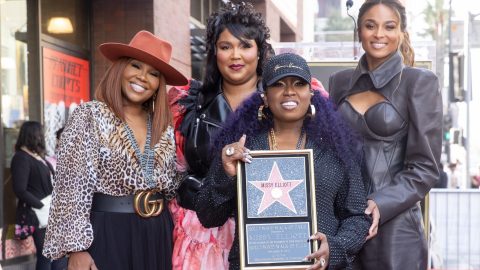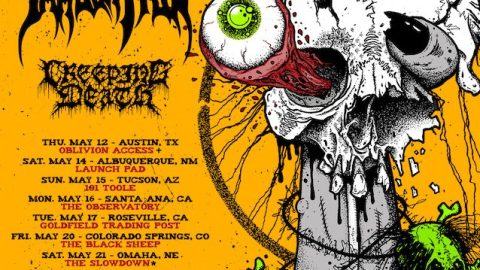
Ethan Hawke doesn’t play bad guys. Breaking his own rule in this reunion with Sinister director Scott Derrickson, Hawke plays one of the baddest bad guys he can find. In The Black Phone, he’s a deranged bogeyman who steals children and walls them up in a basement. Part of the appeal for Hawke could be the fact he’s hidden for almost the entire film. With his face partially obscured by a horned devil mask that he can switch into a smile or frown, Hawkes plays “The Grabber” like something out of classical Greek theatre.
And if it wasn’t the mask that lured Hawke to the dark side, it was surely Derrickson’s script, which adapts Joe Hill’s short story into a horror film with a deeply personal edge. More coming-of-age tale than slasher, The Black Phone is set in 1978 in the same working-class Colorado suburbs where Derrickson grew up. It’s a story told from the point of view of 12-year-old Finney (Mason Thomas) and his little sister Gwen (Madeline McGraw).
Some of the local kids have started disappearing but Finney still gets lured in by a creepy magician (Hawke) who drugs him, then bundles him into the back of a van. Waking up in The Grabber’s death dungeon, Finney finds himself with nothing but a mattress and an old-fashioned black telephone. The receiver isn’t connected, but Finney tries it anyway and somehow gets through to the ghosts of dead children murdered in the same room. Back home, Gwen starts having dreams about the ghost kids, but when she tells her alcoholic dad (Jeremy Davis), he beats her for talking rubbish while her brother is missing.
It’s tough, hard, frightening stuff, but the film’s most potent horror is framed around real-world abuse. Stephen King looms large here (the story’s author, Joe Hill, is King’s son) and The Black Phone often feels like an intimate retooling of It: one that devotes more time to the pain of growing up than the pain of being gutted by a creepy clown.
Unfortunately, the balance doesn’t always work. Never not feeling like two different films mashed together, the abuse metaphors are clumsy even when they hit hard, and it’s difficult to shake the sense that Derrickson is hiding far too much of his own difficult childhood behind the kind of kooky supernatural gimmicks we expect from him. Thomas and McGraw are both fine, but they’re always the least interesting thing in the film, which makes the main mystery less gripping the longer it lasts.
Fortunately, Hawke is fantastic. Over-acting like his life depends on it, his mad kabuki mugging somehow works perfectly. Standing in complete contrast to the film’s more grounded domestic horror, his scary/weird Grabber twists the story into a fairytale nightmare. By cranking up the parts of his performance you can actually see, his bogeyman pays off here like some kind of gross cartoon metaphor for child abuse. In fact, The Black Phone works best whenever he’s on-screen, suggesting Hawke should play the baddest of bad guys more often.
Details
- Director: Scott Derrickson
- Featuring: Ethan Hawke, Mason Thomas, Madeleine McGraw
- Release date: June 24
The post ‘The Black Phone’ review: Ethan Hawke smashes it as a masked bogeyman appeared first on NME.





